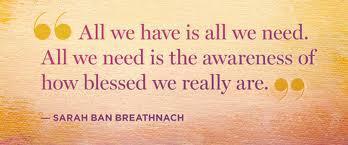You need to accept yourself." (Thich Nhat Hanh)
"Forgiveness is just that... It is 'For'-giving yourself the acceptance you were not able to give earlier." Sunie SeventhHeart


This definition overlaps with the definition of the quality tolerance. Acceptance and tolerance are not synonyms.
E. Tolle (Power of Now, etc.) defines acceptance as a "this is it" response to anything occurring in any moment of life. There, strength, peace and serenity are available when one stops struggling to resist, or hang on tightly to what is so in any given moment. What do I have right now? Now what I am I experiencing? The point is, can one be sad when one is sad, afraid when afraid, silly when silly, happy when happy, judgmental when judgmental, overthinking when overthinking, serene when serene, etc.

[edit] TypesIt should be recognised, before any breakdown to types, that acceptance is treating what happens, the actual event which is the outcome of all the combined previous events, as on balance the best outcome. Acceptance typically contains the concept of approval; it is important to note that the psychospiritual use of the term infers a non-judgmental mindset. Acceptance is contrasted with resistance, but that term has strong political and psychoanalytic connotations not applicable in many contexts. By groups and by individuals, acceptance can be of various events and conditions in the world; individuals may also accept elements of their own thoughts, feelings, and personal histories. For example, psychotherapeutic treatment of a person with depression or anxiety could involve fostering acceptance either for whatever personal circumstances may give rise to those feelings or for the feelings themselves. (Psychotherapy could also involve lessening an individual's acceptance of various situations.)
Notions of acceptance are prominent in many faiths and meditation practices. For example, Buddhism's first noble truth, "All life is suffering", invites people to accept that suffering is a natural part of life. The term "Kabbalah" means literally acceptance. Minority groups in society often describe their goal as "acceptance", wherein the majority will not challenge the minority's full participation in society. A majority may be said (at best) to "tolerate" minorities when it confines their participation to certain aspects of society. Acceptance is the fifth stage of the Kübler-Ross model (commonly known as the "stages of dying").
The Big Book of Alcoholics Anonymous describles the importance of acceptance in the treatment of alcoholism. It states that acceptance can be used to resolve situations where a person feels disturbed by a "person, place, thing or situation -- some fact of my life -- [which is] unacceptable to me". It claims that an alcoholic person cannot find serenity until that person accepts that "nothing happens in God's world by mistake" and that the condition of alcoholism must be accepted as a given.[1]


No comments:
Post a Comment